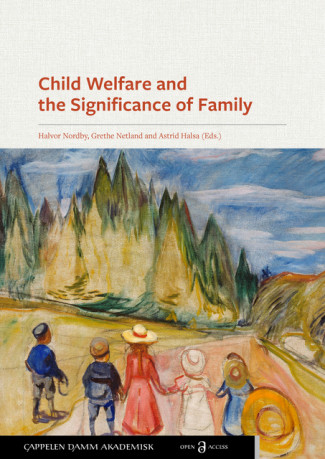This book focuses on the significance of family in child welfare (CW) services from multidisciplinary perspectives. The authors are concerned with how families experience encounters with CW workers, how professional CW work with families is guided by rules and principles, and how social structures and ideologies influence CW work. Taken together, the chapters contribute to a comprehensive understanding of how CW workers should understand the importance of family for children.
The book is important for everyone who works with the welfare of children and their families, and for those who educate CW workers. Although the context for many of the discussions in the book is Norwegian CW work, the topics are general, recognisable and relevant to similar discussions in other countries. The book is intended for CW workers, policymakers, researchers, and teachers and students in social work and child welfare study programmes.












